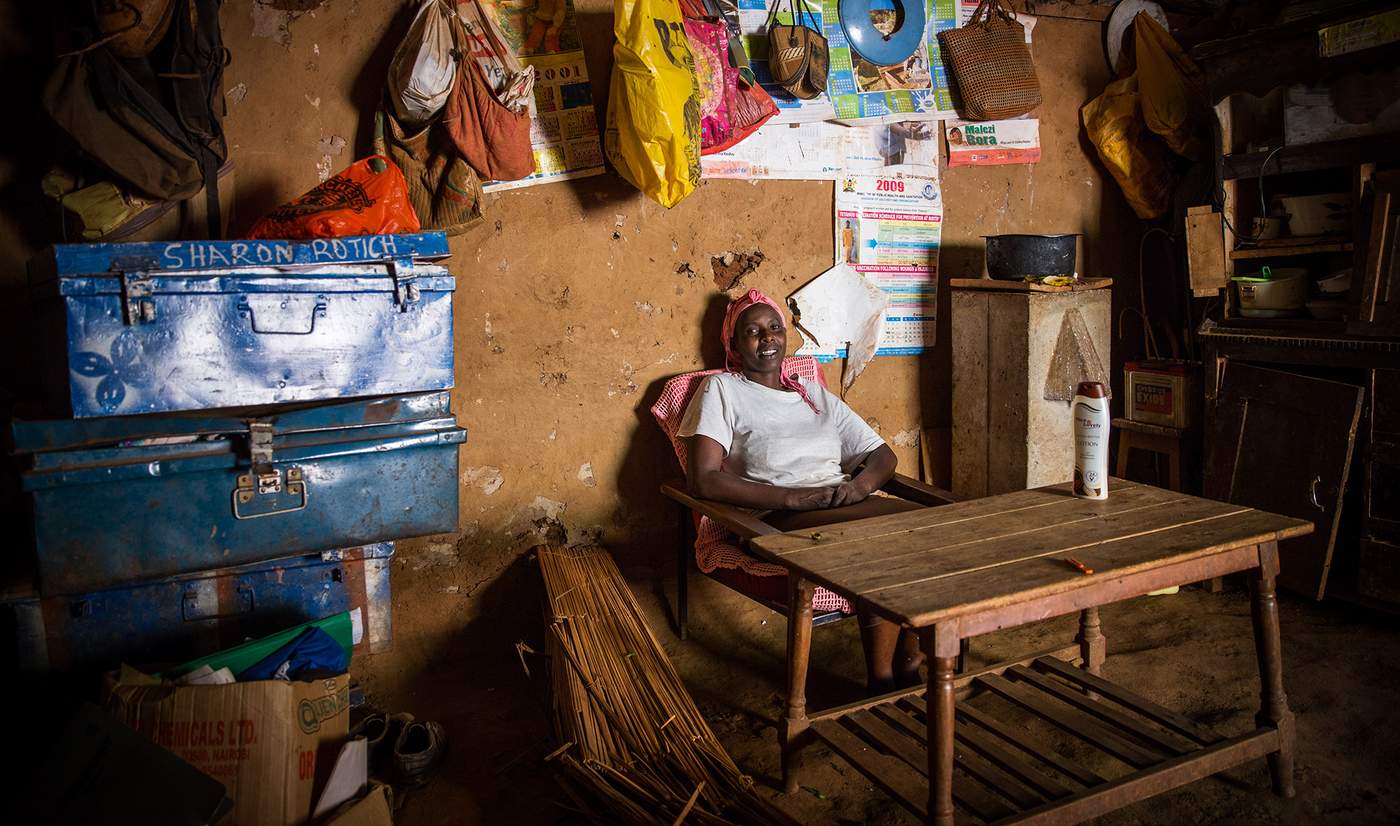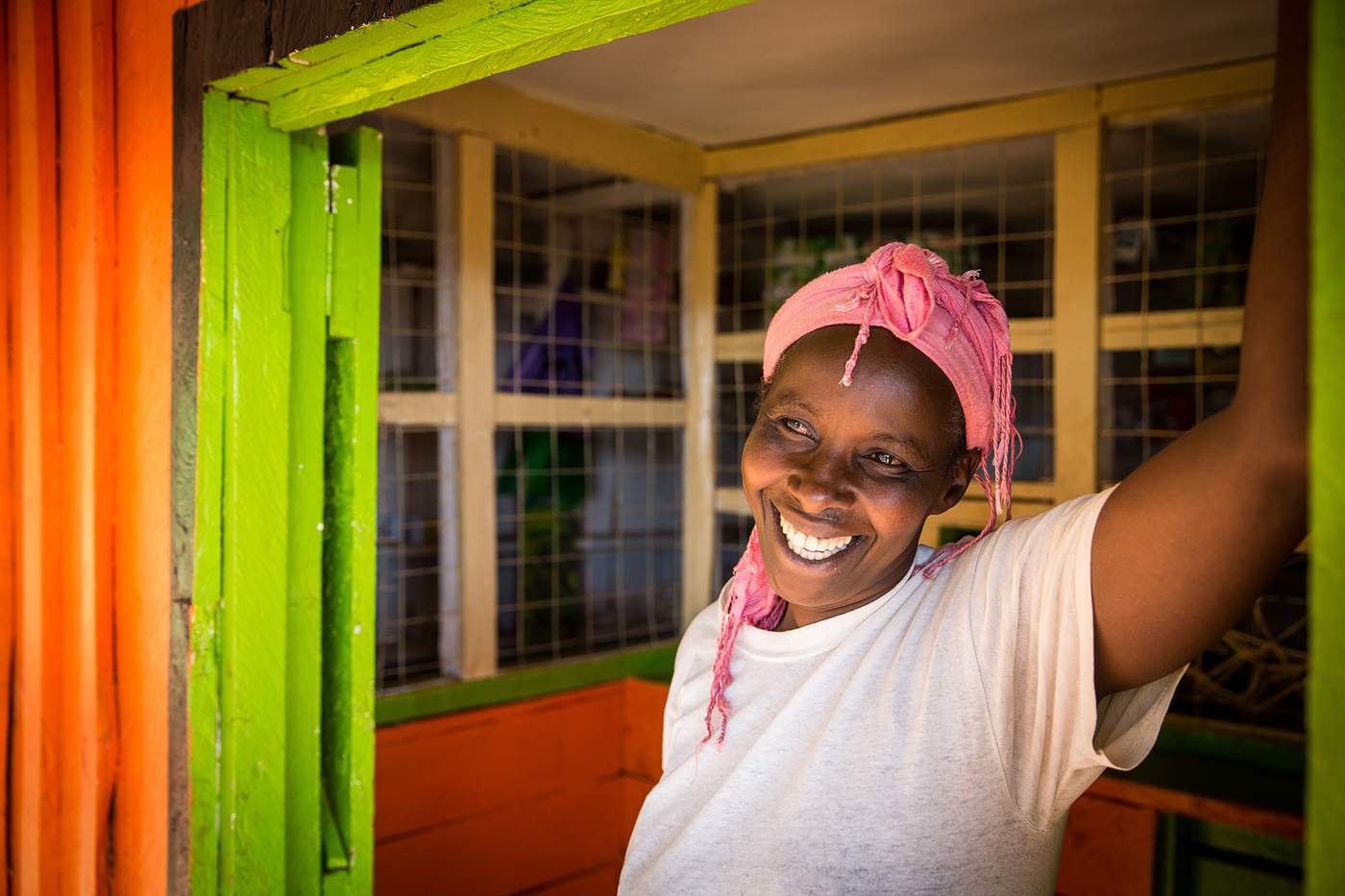How 18 hours changed a family’s life forever
Little did Stephen Cheruiyot know that when he signed up for the Habitat financial literacy course in 2009 that he and his family’s lives would change so dramatically.
Seven years ago, Stephen took HFH Kenya’s Bomet branch’s 18-hour financial literacy course along with some of his neighbors in the village. The six-week course changed the way his family budgeted what they earned and taught him new life skills. He is the secretary of the 16-member savings group, a “Kaplegetet”. Every Sunday they get together to discuss their lives and progress towards their goals of owning their own homes.
Stephen, his wife, two daughters, mother and two sons of his late brother live in the original home that is next door to his new home that is almost finished. All he needs are a door and a ceiling. “It is our custom not to move into a house until it is fully completed,” said Stephen. “The idea is that if we move in before it is done, we will never finish it.”
Stephen started small with a $350 loan in 2009 that served as the concrete slab that his house now sits on. In 2012 he took out another loan for $1,000 that he used to start construction. After paying back the loan, he took out a third and what he expects to be his last loan in 2013 to complete the house by October 2016. “It took us a while but it will be done very soon.”
The financial literacy course helped Stephen expand his vision for what could be done. “I didn’t realize how I could save. I also didn’t realize how much of an entrepreneur I was,” said Stephen. Today, he owns two cows and a small kiosk his mother manages. “She tends the cows and the store, while I work and my wife teaches second grade. The store sells about three liters of milk per day along with sugar, tea, rice and eggs (from the family’s 10 chickens). The store brings in about 10,000 Kenyan Shillings ($35) a month. I use the proceeds to pay off the loan.”
Stephen’s soon-to-be-completed home will have five rooms—a sitting room, two bedrooms, kitchen and veranda. Currently they use the partially-built home as sleeping quarters for his brother’s boys who attend primary school. He also uses the space to welcome visitors, a study for his children, and to store construction materials.
His neighbors have asked Stephen, who now works for the Bomet municipality, how he did it. “I tell them to form a group, just like what we did and reach out to Habitat’s office in Bomet to get started. It changed my life forever.”


